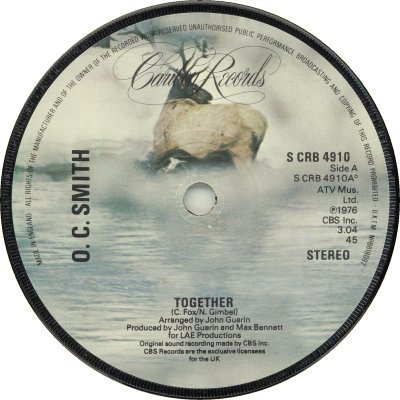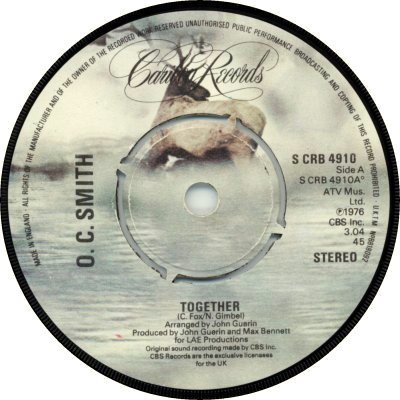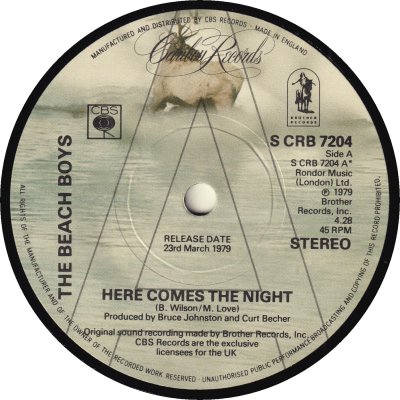


The label of James William Guercio's 'Caribou Ranch' recording facility, in Nederland, Colorado. The addition of a record label to the Ranch's studio, publishing and management facilities was announced in 'Billboard' of the 13th of September 1975. The label would be linked to CBS / Epic, and according to the article the intention was to keep Caribou 'selective', with a roster of around four to six artists. Some ten months later, 'BB' of the 27th of November 1976 was able to say that the roster included the L.A. Express, Gerard, and James Vincent, and that O.C. Smith had just been signed. The article added that the label was intending to grow and diversify, but that it didn't want to grow too quickly. From around the middle of 1979, however, Caribou's focus was principally on the Beach Boys - who were handled by Caribou Management - and the band's members, with only Sailor contributing much else in the way of product.
Caribou made its debut in the UK a couple of years after it had appeared in the USA, and its roster was correspondingly smaller. As was the case in its home land, it enjoyed close links with CBS; its singles shared a common numerical series with those of the other labels in the CBS group, though it had its own CRB prefix until early '80s. It reached the No.25 spot in the Charts with its first release here, O.C. Smith's, 'Together' b/w 'Just Couldn't Help Myself' (CRB-4910; 2/77), and the Beach Boys added three more hits before the end of the decade, the most successful being 'Lady Lynda' b/w 'Full Sail' (CRB-7427; 7/79), which peaked at No.6, but the 1980s were hit-free. Apart from Smith and people associated with the Beach Boys the only other act to feature on the label in this country was Sailor.
One label design served throughout. Promo copes were marked with the release date and also with a large hollow 'A', in one of the usual CBS styles of the time (3); the 'A' was coloured red for the first single and black thereafter. Manufacture and distribution were of course by CBS. Caribou singles were usually solid-centred, lacking dinking perforations; the only perforated ones that I have seen were contract pressings done by other companies - the second scan is of an EMI pressing, recognizable by the narrowness of the perforations. The discography below only covers the 1970s.



Copyright 2006 Robert Lyons.

